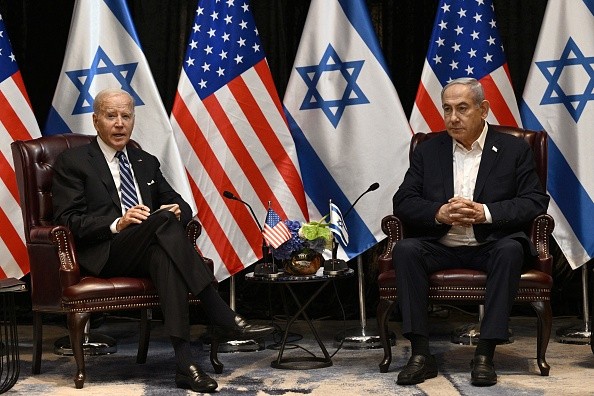
On Sunday, the White House announced that US President Joe Biden spoke with Israeli Prime Minister Benjamin Netanyahu as pressure builds on Israel and Hamas to reach a deal that would release some Israeli hostages and achieve a ceasefire in the nearly seven-month-long war in Gaza.
It was the first time that Biden and Netanyahu had spoken since Hamas militants released a video on Saturday showing a US citizen taken hostage in the bloody attack on October 7.
According to the White House readout of the call, the president referred to his statement with 17 other world leaders demanding that Hamas release their citizens without delay to secure a ceasefire and aid for the people of Gaza.
Biden's latest conversation with the Israeli PM comes with the growing national protest movement against the US's involvement in the conflict, which is most likely being sparked by the violent crackdowns on demonstrators at Columbia University and others, including Emory University in Georgia.
Protesters were inside and outside the White House Correspondent's Association dinner on Saturday in Washington, DC, but there were no disruptions to the main event.
Many of the participants had to endure a barrage of shouted condemnations from demonstrators who noted a call by Palestinian journalists to boycott the event.
On Sunday, Keith Siegel, the niece of one of the hostages seen in a video released by Hamas a day earlier, expressed her displeasure with Netanyahu in response to the news on CBS's Face the Nation, accusing him of using political advantage to avoid negotiating a hostage release with the militant group's leadership.
Hanna Siegel said she thinks an agreement can be reached, citing a previous hostage deal that resulted in a temporary ceasefire last fall.
A national security supplemental package that gives Israel $26.38 billion in military aid was signed into law by the president last week. Progressive members of the House of Representatives opposed the law, but it was passed with overwhelming bipartisan margins.








